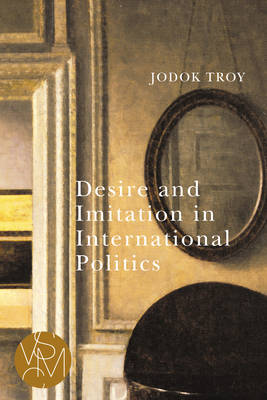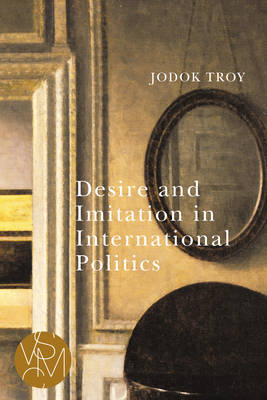
- Afhalen na 1 uur in een winkel met voorraad
- Gratis thuislevering in België vanaf € 30
- Ruim aanbod met 7 miljoen producten
- Afhalen na 1 uur in een winkel met voorraad
- Gratis thuislevering in België vanaf € 30
- Ruim aanbod met 7 miljoen producten
Zoeken
Omschrijving
Imitating the desire of others is inherent to the struggle for power in international politics. The imitation of desire is a human trait seldom recognized in International Relations studies, let alone conceptualized. The imitation of desire that takes place among entities--as opposed to being intentionally generated by them--challenges the conventional wisdom of International Relations that assumes rational autonomous individuals. This book identifies the root of Realism, pointing out its awareness of the conflicting impact of desire and imitation in a world driven by restless comparison. It subsequently demonstrates the conceptual value of mimetic theory while proposing a template of understanding international polities, starting from assumptions of disorder and violence. This volume not only contributes to the study of conflict based on the imitation of the desire of others among international polities, but also proposes in its conceptualization that it is worth looking at studies of agency and structure, normative change, peace, and reconciliation.
Specificaties
Betrokkenen
- Auteur(s):
- Uitgeverij:
Inhoud
- Aantal bladzijden:
- 166
- Taal:
- Engels
- Reeks:
Eigenschappen
- Productcode (EAN):
- 9781611863888
- Verschijningsdatum:
- 1/03/2021
- Uitvoering:
- Paperback
- Formaat:
- Trade paperback (VS)
- Afmetingen:
- 152 mm x 226 mm
- Gewicht:
- 204 g

Alleen bij Standaard Boekhandel
+ 63 punten op je klantenkaart van Standaard Boekhandel
Beoordelingen
We publiceren alleen reviews die voldoen aan de voorwaarden voor reviews. Bekijk onze voorwaarden voor reviews.











